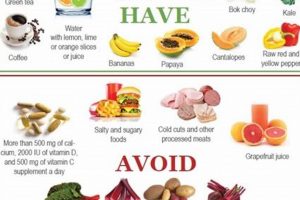
A plant-based nutritional approach, devoid of all animal products, holds implications for individuals susceptible to renal calculi. This dietary strategy emphasizes fruits, vegetables, legumes, and grains, excluding meat, dairy, and eggs. The... Read more »

Renal calculi, solid masses composed of crystals, can form within the kidneys and urinary tract. A dietary approach characterized by the exclusion of all animal products has implications for the formation and... Read more »

The central question addresses whether dietary patterns devoid of animal products possess the capability to undo damage or dysfunction within the renal system. Understanding this requires examining the impact of plant-based nutrition... Read more »

The interplay between plant-based nutritional approaches and the development of nephrolithiasis is a subject of increasing scientific scrutiny. Dietary choices can significantly influence urinary composition, including pH, calcium, oxalate, and uric acid... Read more »

The relationship between plant-based eating patterns and renal health represents a complex and evolving area of nutritional science. Dietary choices can significantly impact kidney function, particularly in individuals with pre-existing renal conditions.... Read more »

A dietary regimen excluding all animal products, while potentially beneficial for overall health, can, under certain circumstances, influence the formation of mineral deposits within the kidneys. These crystalline aggregations arise from the... Read more »

A plant-based dietary approach excluding all animal products, when adapted for individuals with impaired renal function, necessitates careful consideration of nutrient intake. This specialized nutritional strategy aims to minimize strain on the... Read more »


